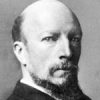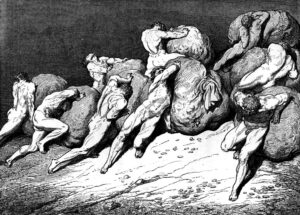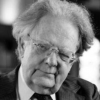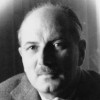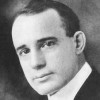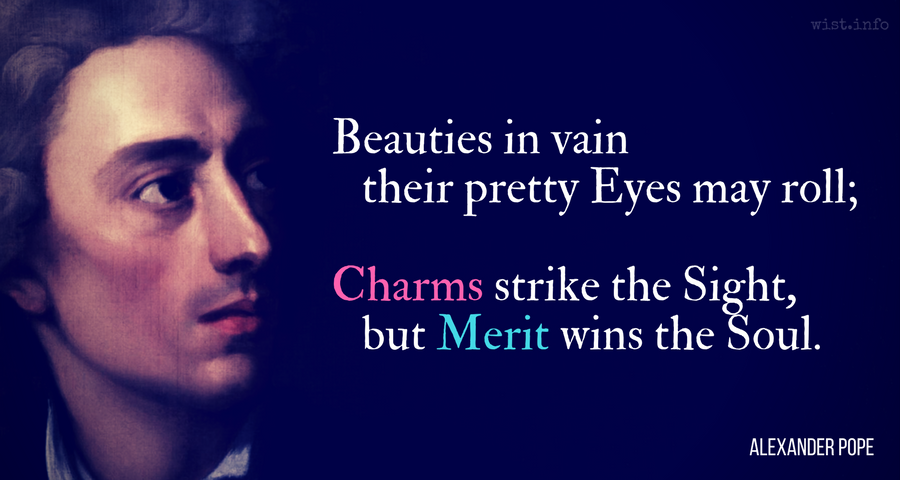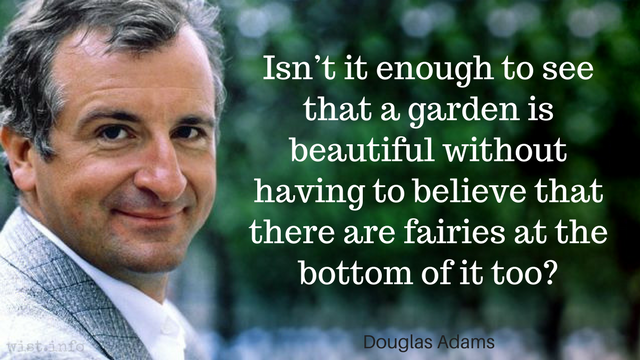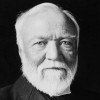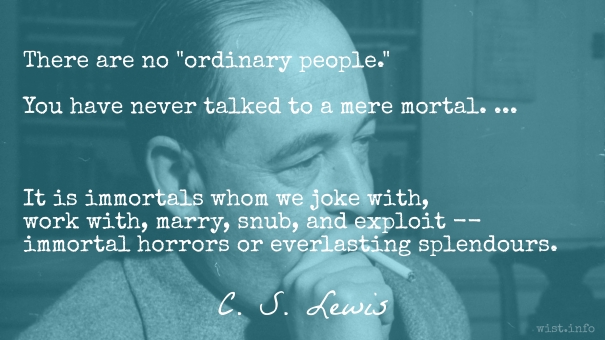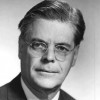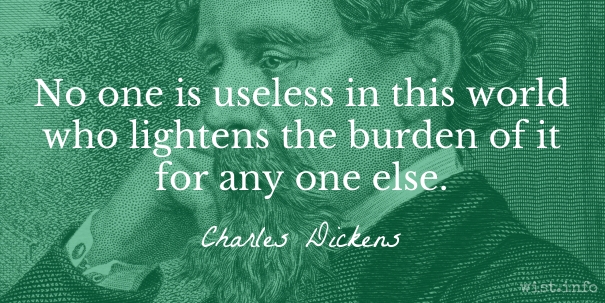All is not gold that glisters.
George Herbert (1593-1633) Welsh priest, orator, poet.
Jacula Prudentum, or Outlandish Proverbs, Sentences, &c. (compiler), # 306 (1640 ed.)
(Source)
Quotations about:
value
Note not all quotations have been tagged, so Search may find additional quotes on this topic.
FRIAR: For it so falls out
That what we have we prize not to the worth,
Whiles we enjoy it, but being lacked and lost,
Why then we rack the value, then we find
The virtue that possession would not show us
Whiles it was ours.William Shakespeare (1564-1616) English dramatist and poet
Much Ado About Nothing, Act 4, sc. 1, l. 228ff (4.1.228-233) (1598)
(Source)
ALBANY: You are not worth the dust which the rude wind
Blows in your face.William Shakespeare (1564-1616) English dramatist and poet
King Lear, Act 4, sc. 2, l. 39ff (4.2.39-40) (1606)
(Source)
Speaking to Goderil.
Modesty is to merit as shadows are to the figure in a painting: it strengthens it and sets it off.
[La modestie est au mérite ce que les ombres sont aux figures dans un tableau: elle lui donne de la force et du relief.]Jean de La Bruyère (1645-1696) French essayist, moralist
The Characters [Les Caractères], ch. 2 “Of Personal Merit [Du Mérite Personnel],” § 17 (2.17) (1688) [tr. Stewart (1970)]
(Source)
(Source (French)). Alternate translations:
Modesty is to Merit, what Shades are to the Figures in a Picture; it gives it Strength and Heightening.
[Curll ed. (1713)]
Modesty is to Merit as Shades to Figures in a Picture; giving it Strength and Beauty.
[Browne ed. (1752)]
Modesty is to merit what shade is to figures in a picture; it gives it strength and makes it stand out.
[tr. Van Laun (1885)]
I know which side my bread is buttered on: the side which falls on the carpet.
Mignon McLaughlin (1913-1983) American journalist and author
The Second Neurotic’s Notebook, ch. 10 (1966)
(Source)
Where bread is wanting, all’s to be sold.
Benjamin Franklin (1706-1790) American statesman, scientist, philosopher, aphorist
Poor Richard (1733)
(Source)
The second time I ever saw you I learned what I had read in books but I had never actually believed: that love and suffering are the same thing and that the sum of love is what you have to pay for it and any time you get it cheap you have cheated yourself.
William Faulkner (1897-1962) American novelist
The Wild Palms [If I Forget Thee, Jerusalem], ch. 3 [Charlotte] (1939)
(Source)
The bitter, yet merciful, lesson which death teaches us is to distinguish the gold from the tinsel, the true values from the worthless chaff.
Felix Adler (1851-1933) German-American educator
Life and Destiny, Lecture 8 “Suffering and Consolation” (1903)
(Source)
You now can see, dear son, the short-lived pranks
that goods consigned to Fortune’s hand will play,
causing such squabbles in the human ranks.
For all the gold that lies beneath the moon —
or all that ever did lie there — would bring
no respite to these worn-out souls, not one.[Or puoi, figliuol, veder la corta buffa
d’i ben che son commessi a la fortuna,
per che l’umana gente si rabuffa;
ché tutto l’oro ch’è sotto la luna
e che già fu, di quest’anime stanche
non poterebbe farne posare una.]Dante Alighieri (1265-1321) Italian poet
The Divine Comedy [Divina Commedia], Book 1 “Inferno,” Canto 7, l. 61ff (7.61-66) [Virgil] (1309) [tr. Kirkpatrick (2006)]
(Source)
On the never-ending labor and contention between the hoarders and the wasters. (Source (Italian)). Alternate translations:
Therefore, my Son, the vanity you may
Of Fortune's gifts perceive, for which Mankind
Raise such a bustle, and so much contend.
Not all the Gold which is beneath the moon,
Or which was by these wretched Souls possess'd,
Could ever satisfy their craving minds.
[tr. Rogers (1782), l. 53ff]
Learn hence of mortal things how vain the boast,
Learn to despise the low, degen'rate host,
And see their wealth how poor, how mean their pride;
Not all the mines below the wand'ring moon,
Not all the sun beholds at highest noon,
Can for a moment bid the fray subside.
[tr. Boyd (1802), st. 11]
Now may’st thou see, my son! how brief, how vain,
The goods committed into fortune’s hands,
For which the human race keep such a coil!
Not all the gold, that is beneath the moon,
Or ever hath been, of these toil-worn souls
Might purchase rest for one.
[tr. Cary (1814)]
Now may'st thou, son, behold how brief the shuffle
Of goods by shifting Fortune held in store,
For which the human kind so fiercely ruffle:
Since all below the moon of golden ore
That lies, or all those weary souls possessed,
Could purchase none a moment's peace the more.
[tr. Dayman (1843)]
But thou, my Son, mayest [now] see the brief mockery of the goods that are committed unto Fortune, for which the human kind contend with each other.
For all the gold that is beneath the moon, or ever was, could not give rest to a single one of these weary souls.
[tr. Carlyle (1849)]
Now see, my son, how frivolous and vain
The goods committed unto Fortune's hand,
For which the race will so rebutting stand.
Not all the gold that is beneath the moon,
Nor all these toil-worn creatures have possessed,
could purchase for them but a moment's rest.
[tr. Bannerman (1850)]
And now, my son, behold the folly brief
of the world's goods to fortune's guidance given,
And for which men so struggle and dispute.
Not all the gold that is beneath the moon,
Or ever was, unto these wearied souls
Could give one hour of respite or of peace.
[tr. Johnston (1867)]
Now canst thou. Son, behold the transient farce
Of goods that are committed unto Fortune,
For which the human race each other buffet;
For all the gold that is beneath the moon,
Or ever has been, of these weary souls
Could never make a single one repose.
[tr. Longfellow (1867)]
Now canst thou, my son, see the short game of the goods which are entrusted to Fortune, for which the human race buffet each other. For all the gold that is beneath the moon and that ever was, of these wearied souls could never make one of them rest.
[tr. Butler (1885)]
Now thou canst see, O son, the short-lived day
Of good, committed unto Fortune's 'hest,
For which the human race so strives alway.
Since all the gold beneath the moon possest,
Or ever owned by those worn souls of yore,
Could not make one of them one moment rest.
[tr. Minchin (1885)]
Now canst thou, son, see the brief jest of the goods that are committed unto Fortune, for which the human race so scramble; for all the gold that is beneath the moon, or that ever was, of these weary souls could not make a single one repose.
[tr. Norton (1892)]
Here mayest thou see, my son, the fleeting mockery of wealth that is the sport of Fortune, for sake of which men strive with one another. For all the gold that is, or ever hath been beneath the moon, could not procure repose for one of these weary souls.
[tr. Sullivan (1893)]
Now canst thou see, my son, how vain and short-lived
Are the good things committed unto fortune,
For which sake human folk set on each other.
For all the gold on which the moon now rises,
Or ever rose, would be quite unavailing
To set one of these weary souls at quiet.
[tr. Griffith (1908)]
Now mayst thou see, my son, the brief mockery of wealth committed to fortune, for which the race of men embroil themselves; for all the gold that is beneath the moon, or ever was, could not give rest to one of these weary souls.
[tr. Sinclair (1939)]
Now, my son, see to what a mock are brought
The goods of Fortune's keeping, and how soon!
Though to possess them still is all man's thought.
For all the gold that is beneath the moon,
Or ever was, never could buy repose
For one of those souls, faint to have that boon.
[tr. Binyon (1943)]
See now, my son, the fine and fleeting mock
Of all those goods men wrangle for -- the boon
That is delivered into the hand of Luck;
For all the gold that is beneath the moon,
Or ever was, could not avail to buy
Repose for one of these weary souls -- not one.
[tr. Sayers (1949)]
Now may you see the fleeting vanity
of the goods of Fortune for which men tear down
all that they are, to build a mockery.
Not all the gold that is or ever was
under the sky could buy for one of these
exhausted souls the fraction of a pause.
[tr. Ciardi (1954)]
Now you can see, my son, the brief mockery of the goods that are committed to Fortune, for which humankind contend with one another; because all the gold that is beneath the moon, or ever was, would not give rest to a single one of these weary souls.
[tr. Singleton (1970)]
You see, my son, the short-lived mockery
of all the wealth that is in Fortune's keep,
over which the human race is bickering;
for all the gold that is or ever was
beneath the moon won't buy a moment's rest
for even one among these weary souls.
[tr. Musa (1971)]
Now you can see, my son, how brief's the sport
of all those goods that are in Fortune's care,
for which the tribe of men contend and brawl;
for all the gold that is or ever was
beneath the moon could never offer rest
to even one of these exhausted spirits.
[tr. Mandelbaum (1980)]
Now you can see, my son, how short a life
Have the gifts which are distributed by Fortune,
And for which people get rough with one another:
So that all the gold there is beneath the moon
And all there ever was, could never give
A moment's rest to one of these tired souls.
[tr. Sisson (1981)]
Now you can see, my son, how ludicrous
And brief are all the goods in Fortune's ken,
Which humankind contend for: you see from this
How all the gold there is beneath the moon,
Or that there ever was, could not relieve
One of these weary souls.
[tr. Pinsky (1994), l. 55ff]
Now you can see, my son, the brief mockery of the goods that are committed to Fortune, for which the human race so squabbles;
for all the gold that is under the moon and that ever was, could not give rest to even one of these weary souls.
[tr. Durling (1996)]
But you, my son, can see now the vain mockery of the wealth controlled by Fortune, for which the human race fight with each other, since all the gold under the moon, that ever was, could not give peace to one of these weary souls.
[tr. Kline (2002)]
Now you see, my son, what brief mockery
Fortune makes of goods we trust her with,
for which the race of men embroil themselves.
All the gold that lies beneath the moon,
or ever did, could never give a moment's rest
to any of these wearied souls.
[tr. Hollander/Hollander (2007)]
Now see, my son, the futile mockery
Of spending a life accumulating possessions,
Competing with fortune and men for worthless frippery:
Take all the gold still lying under the moon,
Add all that ever was and you could not buy
A moment of rest for one of these souls -- not one.
[tr. Raffel (2010)]
You see it clear,
My son: the squalid fraud as brief as life
Of goods consigned to Fortune, whereupon
Cool heads come to the boil, hands to the knife.
For all the gold there is, and all that's gone,
Would give no shred of peace to even one
Of these drained souls.
[tr. James (2013), l. 56ff]
For a liberal arts education is not a tool like a hoe or a blueprint or an electric mixer. It is a true and precious stone which can glow just as wholesomely on a kitchen table as when it is put on exhibition in a jeweler’s window or bartered for bread and butter. Learning is a boon, a personal good. It is a light in the mind, a pleasure for the spirit, an object to be enjoyed. It is refreshment, warmth, illumination, a window from which we get a view of the world. To what barbarian plane are we descending when we demand that it serve only the economy?
Phyllis McGinley (1905-1978) American author, poet
“A Jewel in the Pocket,” Sixpence in Her Shoe (1964)
(Source)
Of all treasures this is best: to find a noble-minded wife.
[τῶν γὰρ πλούτων ὅδ’ ἄριστος
γενναῖον λέχος εὑρεῖν.]Euripides (485?-406? BC) Greek tragic dramatist
Andromeda [Ἀνδρομέδα], Frag. 137 (TGF) (412 BC)
(Source)
(Source (Greek)). Alternate translations:
The best of treasures is a virtuous Wife.
[tr. Wodhull (1809)]
Best of all riches is to find a noble spouse.
[@sentantiq (2014)]
The company of just and righteous men is better
than wealth and a rich estate.[κρεῖσσον δὲ πλούτου καὶ βαϑυσπόρου χϑονὸς
ἀνδρῶν δικαίων χἀγαϑῶν ὁμιλίαι]
Remember that you can’t necessarily sanctify a cause by virtue of the fact that men die for it. A death in a worthless or even questionable cause is a pointless, meaningless, tragically premature death.
Rod Serling (1924-1975) American screenwriter, playwright, television producer, narrator
Commencement Address, Ithaca College, New York (13 May 1972)
(Source)
Sylvia never gives free lays.
It’s never free — because she pays.[Lesbia se iurat gratis numquam esse fututam.
Verum est. Cum futui vult, numerare solet.]Martial (AD c.39-c.103) Spanish Roman poet, satirist, epigrammatist [Marcus Valerius Martialis]
Epigrams [Epigrammata], Book 11, epigram 62 (11.62) (AD 96) [tr. Wills (2007)]
(Source)
(Source (Latin)). Alternate translations:
Lesbia protests that no one has ever obtained her favours without payment.
That is true; when she wants a lover, she herself pays.
[tr. Bohn's Classical (1897)]
Lesbia swears she has never granted her favours without a price.
That is true: on those occasions she is wont herself to pay it.
[tr. Ker (1919)]
She never gives herself for love? No doubt.
She has to buy her loves or do without!
[tr. Pott & Wright (1921), "Bought Pleasures"]
Lesbia swears she's never been had
Gratis. That's true. You see:
When she is in one of her amorous moods,
It's she who pays, not we.
[tr. Marcellino (1968), ]
Lesbia claims she's never been laid
Without good money being paid.
That's true enough: when she's on fire
She'll always pay the hose's hire.
[tr. Michie (1972)]
Lesbia swears she's never been fucked for free.
True, for when she wants it, she pays the fee.
[tr. Pitt-Kethley (1987)]
Lesbia swears she's never screwed for free.
That's true, for when she's fucked, she pays the fee.
[tr. Pitt-Kethley (1992)]
Lesbia swears that she has never been fucked free of charge.
It's true. When she wants to be fucked, she is accustomed to pay cash.
[tr. Shackleton-Bailey (1993)]
She swears she never puts out for free.
(Though she's the one who pays the fee.)
[tr. Ericsson (1995)]
Lesbia swears she’s never been fucked for free.
True. When she wants to be fucked, she has to pay.
[tr. Kline (2006), "On the Nail"]
Lesbia swears she never gives free lays.
It's true: when she gets fucked, she always pays.
[tr. Kennelly (2008)]
When you offered your wife to each passer-by free,
Not a soul ever wanted to try her.
You have learnt wisdom now: kept beneath lock and key
She has crowds of men waiting to buy her.[Nullus in urbe fuit tota qui tangere vellet
Uxorem gratis, Caeciliane, tuam,
Dum licuit: sed nunc positis custodibus ingens
Turba fututorum est: ingeniosus homo es.]Martial (AD c.39-c.103) Spanish Roman poet, satirist, epigrammatist [Marcus Valerius Martialis]
Epigrams [Epigrammata], Book 1, epigram 73 (1.73) (AD 85-86) [tr. Pott & Wright (1921)]
(Source)
(Source (Latin)). Alternate translations:
Cayus, none reckned of they wife a poynt,
While each man might, without all let or cumber,
But since a watch o're her thou didst appoint,
Of Customers she hath no little number.
Well, let them laugh hereat that list, and scoffe it,
But thou do'st find what makes most for thy profit.
[tr. Harington (1618)]
Scarce one in all the city would embrace
Thy proffere'd wife, Caecilian, free to have;
But now she's guarded, and lock'd up, apace
Thy custom comes. Oh, thou'rt a witty knave!
[tr. Fletcher (c. 1650)]
Your wife's the plainest piece a man can see:
No soul would touch her, whilst you left her free:
But since to guard her you employ all arts,
The rakes besiege her. -- You're a man of parts!
[tr. Hay (1755), ep. 74]
These was no one in the whole city, Caecilianus, who desired to meddle with your wife, even gratis, while permission was given; but now, since you have set a watch upon her, the crowd of gallants is innumerable. You are a clever fellow!
[tr. Bohn's Classical (1859)]
There was no one in the whole town willing to touch your wife, Caecilianus, gratis, while he was allowed; but now you have set your guards, there is a huge crowd of gallants. You are an ingenious person!
[tr. Ker (1919)]
No one in town would touch your wife
so long as she was free, and willing to boot.
But you posted guards, and suddenly brought to life
a swarm of suitors ardent after forbidden fruit
in the garden.
Say, you're a wily warden.
[tr. Bovie (1970)]
When you complaisantly allowed Any man, free of charge, to lay Hands on your wife, not one would play. But now you've posted a house guard There's an enormous randy crowd. Caecilianus, you're a card.
[tr. Michie (1972)]
Nobody in all Rome would have wanted to lay a finger on your wife gratis so long as it was permitted, Maecilianus; but now you have posted guards, there is a huge crowd of fuckers. You're a smart fellow.
[tr. Shackleton Bailey (1993)]
To screw your wife, unguarded, no one cared.
But once you barred her door, a thousand dared.
[tr. Wills (2007)]
None in all Rome would've wished to touch your wife
for free -- if you permitted it -- not ever.
Now that you've posted guards, Caecilianus,
you've drawn a crowd of fuckers. You're so clever.
[tr. McLean (2014)]
No one in this city would
touch your wife, while free they could;
now she’s guarded, there’s a band
of fuckers for her -- clever man!
[tr. @sentantiq/Robinson (2016)]
Caecilianus,
There wasn’t a guy in this whole damn city
Who would have touched your old lady without a stud fee
When she was easily available.
But now, with all those chaperones you’ve hired,
There’s a pack of cocksmen waiting to bang her.
You sure are clever.
[tr. Salemi]
Those who are concerned with the arts are often asked questions, not always sympathetic ones, about the use or value of what they are doing. It is probably impossible to answer such questions directly, or at any rate to answer the people who ask them.
Northrop Frye (1912-1991) Canadian literary critic and literary theorist
Anatomy of Criticism, “Polemical Introduction” (1957)
(Source)
The life of making money is a life people are, as it were, forced into, and wealth is clearly not the good we are seeking, since it is merely useful, for getting something else.
[ὁ δὲ χρηματιστὴς βίαιός τις ἐστίν, καὶ ὁ πλοῦτος δῆλον ὅτι οὐ τὸ ζητούμενον ἀγαθόν.]
Aristotle (384-322 BC) Greek philosopher
Nicomachean Ethics [Ἠθικὰ Νικομάχεια], Book 1, ch. 5 (1.5, 1096a.5) (c. 325 BC) [tr. Crisp (2000)]
(Source)
Rackham notes the term βίαιος (translated under compulsion/constraint) is "literally ‘violent’; the adjective is applied to the strict diet and and laborious exercises of athletes, and to physical phenomena such as motion, in the sense of ‘constrained,’ ‘not natural.’"
(Source (Greek)). Alternate translations:
As for the life of money-making, it is one of constraint, and wealth manifestly is not the good we are seeking, because it is for use, that is, for the sake of something further.
[tr. Chase (1847), ch. 3]
As for the money-getting life, it violates the natural fitness of things. Wealth is clearly not the absolute good of which we are in search, for it is a utility, and nonly desirable as a means.
[tr. Williams (1869)]
The life of money-making is in a sense a life of constraint, and it is clear that wealth is not the good of which we are in quest; for it is useful in part as a means to something else.
[tr. Welldon (1892), ch. 3]
As for the money-making life, it is something quite contrary to nature; and wealth evidently is not the good of which we are in search, for it is merely useful as a means to something else.
[tr. Peters (1893)]
The life of money-making is one undertaken under compulsion, and wealth is evidently not the good we are seeking; for it is merely useful and for the sake of something else.
[tr. Ross (1908)]
The Life of Money-making is a constrained kind of life, and clearly wealth is not the Good we are in search of, for it is only good as being useful, a means to something else.
[tr. Rackham (1934), 1.5.8]
The life of a moneymaker is in a way forced, and wealth is clearly not the good we are looking for, since it was useful and for the sake of something else.
[tr. Reeve (1948), ch. 5]
As for the life of a money-maker, it is one of tension; and clearly the good sought is not wealth, for wealth is instrumental and is sought for the sake of something else.
[tr. Apostle (1975), ch. 3]
As for the life of the businessman, it does not give him much freedom of action. Besides, wealth is obviously not the good that we are seeking, because it serves only as a means; i.e., for getting something else.
[tr. Thomson/Tredennick (1976)]
The moneymaking life is characterized by a certain constraint, and it is clear that wealth is not the good being sought, for it is a useful thing and for the sake of something else.
[tr. Bartlett/Collins (2011)]
The man is nothing, the work all!
[L’homme n’est rien, l’oeuvre tout!]
Gustave Flaubert (1821-1880) French writer, novelist
Letter to George Sand (Dec 1875)
Original French. Arthur Conan Doyle misquoted this in "The Red-Headed League" as "L'homme c'est rien -- l'oeuvre c'est tout."
You are astonished to find yourself the butt of so much calumny, opposition, indifference and ill-will. You will be more so and have more of it; it is the reward of the good and the beautiful: one may calculate the value of a man from the number of his critics and the importance of a work by the evil said of it.
This is all I had to say on friendship. One piece of advice on parting. Make up your minds to this. Virtue (without which friendship is impossible) is first; but next to it, and to it alone, the greatest of all things is Friendship.
[Haec habui de amicitia quae dicerem. Vos autem hortor ut ita virtutem locetis, sine qua amicitia esse non potest, ut ea excepta nihil amicitia praestabilius putetis.]
Marcus Tullius Cicero (106-43 BC) Roman orator, statesman, philosopher
Laelius De Amicitia [Laelius on Friendship], ch. 27 / sec. 104 (44 BC) [tr. Shuckburgh (1909)]
(Source)
Original Latin. Alternate translations:
Such are the remarks I had to make on friendship. But as for you, I exhort you to lay the foundations of virtue, whithout which friendship can not exist, in such a matter that, with this one exception, you may consider that nothing in the world is more excellent than friendship.
[tr. Edmonds (1871)]
I had these things to say to you about friendship; and I exhort you that you so give the foremost place to virtue without which friendship cannot be, that with the sole exception of virtue, you may think nothing to be preferred to friendship.
[tr. Peabody (1887)]
This is all that I had to say about friendship; but I exhort you both so to esteem virtue (without which friendship cannot exist), that, excepting virtue, you will think nothing more excellent than friendship.
[tr. Falconer (1923)]
A society which reverences the attainment of riches as the supreme felicity will naturally be disposed to regard the poor as damned in the next world, if only to justify making their life a hell in this.
R. H. Tawney (1880-1962) English writer, economist, historian, social critic [Richard Henry Tawney]
Religion and the Rise of Capitalism, ch. 4: The Puritan Movement, sec. 4 “The New Medicine for Poverty” (1926)
(Source)
Originally delivered as Holland Lectures, Kings College (Feb-Mar 1922).
For life without life’s joys
Is living death; and such a life is his.
Riches and rank and show of majesty
And state, where no joy is, are empty, vain
And unsubstantial shadows, of no weight
To be compared with happiness of heart.[τὰς γὰρ ἡδονὰς
ὅταν προδῶσιν ἄνδρες, οὐ τίθημ᾽ ἐγὼ
ζῆν τοῦτον, ἀλλ᾽ ἔμψυχον ἡγοῦμαι νεκρόν.
πλούτει τε γὰρ κατ᾽ οἶκον, εἰ βούλει, μέγα
καὶ ζῆ τύραννον σχῆμ᾽ ἔχων: ἐὰν δ᾽ ἀπῇ
τούτων τὸ χαίρειν, τἄλλ᾽ ἐγὼ καπνοῦ σκιᾶς
οὐκ ἂν πριαίμην ἀνδρὶ πρὸς τὴν ἡδονήν]Sophocles (496-406 BC) Greek tragic playwright
Antigone, l. 1165ff [Messenger] (441 BC) [tr. Watling (1947), Epilogos, l. 977ff]
(Source)
Original Greek. Alternate translations:
For him I reckon but
An animate corpse, and not a living man,
Whose life's delights are cast away. Thy house,
I grant thee, may be richly stored with wealth;
And thou may'st live in royal pomp: but if
Joy is not there the while, and I must lose
All happiness thereby, I would not give
Smoke's shadow as the price of all the rest.
[tr. Donaldson (1848)]
For a life
Without life's joys I count a living death.
You'll tell me he has ample store of wealth,
The pomp and circumstance of kings; but if
These give no pleasure, all the rest I count
The shadow of a shade, nor would I weigh
His wealth and power 'gainst a dram of joy.
[tr. Storr (1859)]
For when a man is lost to joy,
I count him not to live, but reckon him
A living corse. Riches belike are his,
Great riches and the appearance of a King;
But if no gladness come to him, all else
Is shadow of a vapour, weighed with joy.
[tr. Campbell (1873)]
When a man has forfeited his pleasures, I do not reckon his existence as life, but consider him just a breathing corpse. Heap up riches in your house, if you wish! Live with a tyrant's pomp! But if there is no joy along with all of that, I would not pay even the shadow of smoke for all the rest, compared with joy.
[tr. Jebb (1891)]
For when a man hath forfeited his pleasures, I count him not as living, -- I hold him but a breathing corpse. Heap up riches in thy house, if thou wilt; live in kingly state; yet, if there be no gladness therewith, I would not give the shadow of a vapour for all the rest, compared with joy.
[tr. Jebb (1917)]
Who can say
That a man is still alive when his life’s joy fails?
He is a walking dead man. Grant him rich,
Let him live like a king in his great house:
If his pleasure is gone, I would not give
So much as the shadow of smoke for all he owns.
[tr. Fitts/Fitzgerald (1939), l. 910ff]
Yes, when a man has lost all happiness,
he's not alive. Call him a breathing corpse.
Be very rich at home. Live as a king.
But once your joy has gone, though these are left
they are smoke's shadow to lost happiness.
[tr. Wyckoff (1954)]
He who forfeits joy
Forfeits his life; he is a breathing corpse.
Heap treasures in your palace, if you will,
And wear the pomp of royalty; but if
You have no happiness, I would not give
A straw for all of it, compared with joy.
[tr. Kitto (1962)]
Believe me,
when a man has squandered his true joys,
he's good as dead, I tell you, a living corpse.
Pile up riches in your house, as much as you like --
live like a king with a huge show of pomp,
but if real delight is missing from the lot,
I wouldn't give you a wisp of smoke for it,
not compared to joy. [tr. Fagles (1982), l. 1284ff]
When every source of joy deserts a man,
I don't call him alive: he's an animated corpse.
For my money, you can get rich as you want,
You can wear the face of a tyrant,
But if you have no joy in this,
Your life's not worth the shadow of a puff of smoke.
[tr. Woodruff (2001)]
Whenever men forfeit their pleasures, I do not regard
such a man as alive, but I consider him a living corpse.
Be very wealthy in your household, if you wish, and live
the style of absolute rulers, but should the enjoyment of these
depart, what is left, compared to pleasure,
I would not buy from a man for a shadow of smoke.
[tr. Tyrell/Bennett (2002)]
When a man’s body has lost all sense of joy, you can say he’s not alive any more. He is a living corpse. You can have as much wealth in your house as you like and you can live like a king but when joy is missing then all those other things I wouldn’t exchange for the price of the shadow of smoke -- not against the sweetness of joy!
[tr. Theodoridis (2004), "Herald"]
For when a man has lost
what gives him pleasure, I don’t include him
among the living -- he’s a breathing corpse.
Pile up a massive fortune in your home,
if that’s what you want -- live like a king.
If there’s no pleasure in it, I’d not give
to any man a vapour’s shadow for it,
not compared to human joy.
[tr. Johnston (2005), l. 1296ff]
But when people lose their pleasures, I do not consider this life -- rather, it is just a corpse with a soul.
[tr. @sentantiq (2018)]
For even the humblest person, a day spent without the sight or sound of beauty, the contemplation of mystery, or the search for truth and perfection is a poverty-stricken day; and a succession of such days is fatal to human life.
Lewis Mumford (1895-1990) American writer, philosopher, historian, architect
The Condition of Man (1944)
(Source)
Ah, woe is me, through all my days
Wisdom and wealth I both have got,
And fame and name and great men’s praise;
But Love, ah, Love! I have it not.H. C. Bunner (1855-1896) American novelist and poet [Henry Cuyler Bunner]
“The Way to Arcady” (1892)
(Source)
“I meant,” said Ipslore bitterly, “what is there in this world that truly makes living worthwhile?”
Death thought about it.
CATS, he said eventually, CATS ARE NICE.Terry Pratchett (1948-2015) English author
Sourcery (1988)
(Source)
This quote is more often repeated in paraphrase, e.g., "What is there in this world that truly makes living worthwhile? Cats. Cats are nice."
More gold has been mined from the brains of men than has ever been taken from the earth.
Napoleon Hill (1883-1970) American author, motivational writer
Think and Grow Rich (1937)
(Source)
In some editions this is given as: "More gold has been mined from the thoughts of men than has ever been taken from the earth."
Making money ain’t nothing exciting to me. … You might be able to buy a little better booze than some wino on the corner. But you get sick just like the next cat, and when you die you’re just as graveyard dead as he is.
Nothing should be made by man’s labour which is not worth making; or which must be made by labour degrading to the makers.
William Morris (1834-1896) British textile designer, writer, socialist activist
Art and Socialism (1884)
(Source)
Then out spake brave Horatius,
The Captain of the Gate:
“To every man upon this earth
Death cometh soon or late.
And how can man die better
Than facing fearful odds,
For the ashes of his fathers,
And the temples of his Gods?Thomas Babington Macaulay (1800-1859) English writer and politician
“Horatius,” st. 27, Lays of Ancient Rome (1842)
(Source)
ANTON EGO: In many ways, the work of a critic is easy. We risk very little, yet enjoy a position over those who offer up their work and their selves to our judgment. We thrive on negative criticism, which is fun to write and to read. But the bitter truth we critics must face, is that in the grand scheme of things, the average piece of junk is probably more meaningful than our criticism designating it so.
As long as our civilization is essentially one of property, of fences, of exclusiveness, it will be mocked by delusions. Our riches will leave us sick; there will be bitterness in our laughter; and our wine will burn our mouth. Only that good profits which we can taste with all doors open, and which serves all men.
Ralph Waldo Emerson (1803-1882) American essayist, lecturer, poet
“Napoleon; or, The Man of the World,” Representative Men, Lecture 6 (1850)
(Source)
The greatest skill in cards is to know when to discard; the smallest of current trumps is worth more than the ace of trumps of the last game.
[La mejor treta del juego es saberse descartar: más importa la menor carta del triunfo que corre que la mayor del que pasó.]
Baltasar Gracián y Morales (1601-1658) Spanish Jesuit priest, writer, philosopher
The Art of Worldly Wisdom [Oráculo Manual y Arte de Prudencia], § 31 (1647) [tr. Jacobs (1892)]
(Source)
(Source (Spanish)). Alternate translations:
The true skill at play, is to know how to discard. The lowest Card that turns up, is better than the highest of the former dealing.
[Flesher ed. (1685)]
The great trick in cards lies in knowing what to discard: and the deuce of a suit that is trump, is more valuable than the ace of a suit that was.
[tr. Fischer (1937)]
The trick is to know what cards to get rid of. The least card in the winning hand in front of you is more important than the best card in the losing hand you just laid down.
[tr. Maurer (1992)]
In the affluent society no sharp distinction can be made between luxuries and necessaries.
John Kenneth Galbraith (1908-2006) Canadian-American economist, diplomat, author
The Affluent Society, ch. 21, sec. 4 (1998, 4th ed.)
(Source)
On sales taxes. Sometimes quoted (from other editions?) as "useful distinction."
Life is not living, but living in health.
[Vita non est vivere, sed valere vita est.]
Martial (AD c.39-c.103) Spanish Roman poet, satirist, epigrammatist [Marcus Valerius Martialis]
Epigrams [Epigrammata], Book 6, epigram 70 (6.70.15) (AD 91) [tr. Ker (1919)]
(Source)
(Source (Latin)). Alternate translations:
It is not life to live, but to be well.
[tr. Burton (1621)]
Not all who live long, but happily, are old.
[tr. Killigrew (1695)]
For sense and reason tell,
That life is only life, when we are well.
[tr. Hay (1755)]
For life is not to live, but to be well.
[tr. Johnson, in The Rambler, #48, cited to Elphinston (1 Sep 1750)]
To brethe can just not dying give:
But, to be well, must be to live.
[tr. Elphinston (1782), 2.115]
For life is not simply living, but living in health.
[tr. Amos (1858)]
Life consists not in living, but in enjoying health.
[tr. Bohn's Classical (1859)]
It is not life to live, but to be well.
[ed. Harbottle (1897)]
The blunderer who deems them so,
Misreckons life and much mistakes it,
He thinks 'tis drawing breath -- we know
'Tis health alone that mars or makes it.
[tr. Pott & Wright (1921)]
Life is not life, but health is life indeed.
[tr. Francis & Tatum (1924), #310]
To live is not just life, but health.
[tr. Shepherd (1987)]
Life is not being alive, but being well.
[tr. Shackleton Bailey (1993)]
It’s a funny thing, the less people have to live for, the less nerve they have to risk losing — nothing.
Zora Neale Hurston (1891-1960) American writer, folklorist, anthropologist
Moses, Man of the Mountain, ch. 2 (1939)
(Source)
Not everyone is worth listening to.
Alain de Botton (b. 1969) Swiss-British author
The Consolations of Philosophy, ch. 1 “Consolation For Unpopularity” (2000)
(Source)
Beauties in vain their pretty Eyes may roll;
Charms strike the Sight, but Merit wins the Soul.
She ate her trifle, reflecting that grinding poverty, though loathsome while one is in it, has the advantage of making one enjoy money in a way denied to the rich-from-birth.
Isn’t it enough to see that a garden is beautiful without having to believe that there are fairies at the bottom of it too?
Douglas Adams (1952-2001) English writer
The Hitchhiker’s Guide to the Galaxy, ch. 16 [Ford] (1979)
(Source)
What we call ‘being in love’ is a glorious state, and, in several ways, good for us. It helps to make us generous and courageous, it opens our eyes not only to the beauty of the beloved but to all beauty, and it sub-ordinates (especially at first) our merely animal sexuality; in that sense, love is the great conqueror of lust. No one in his senses would deny that being in love is far better than either common sensuality or cold self-centredness.
But, as I said before, ‘the most dangerous thing you can do is to take any one impulse of our own nature and set it up as the thing you ought to follow at all costs’. Being in love is a good thing, but it is not the best thing. There are many things below it, but there are also things above it. You cannot make it the basis of a whole life. It is a noble feeling, but it is still a feeling. Now no feeling can be relied on to last in its full intensity, or even to last at all. Knowledge can last, principles can last, habits can last; but feelings come and go. And in fact, whatever people say, the state called ‘being in love’ usually does not last.
C. S. Lewis (1898-1963) English writer, literary scholar, lay theologian [Clive Staples Lewis]
Mere Christianity, Book 3, ch. 6 “Christian Marriage” (1952)
(Source)
No man can tell whether he is rich or poor by turning to his ledger. It is the heart that makes a man rich. He is rich or poor according to what he is, not according to what he has.
There are no ordinary people. You have never talked to a mere mortal. Nations, cultures, arts, civilisations — these are mortal, and their life is to ours as the life of a gnat. But it is immortals whom we joke with, work with, marry, snub, and exploit — immortal horrors or everlasting splendours. This does not mean that we are to be perpetually solemn: We must play. But our merriment must be of that kind (and it is, in fact, the merriest kind) which exists between people who have, from the outset, taken each other seriously — no flippancy, no superiority, no presumption. And our charity must be a real and costly love, with deep feeling for the sins in spite of which we love the sinner — no mere tolerance, or indulgence which parodies love as flippancy parodies merriment. Next to the Blessed Sacrament itself, your neighbour is the holiest object presented to your senses. If he is your Christian neighbour, he is holy in almost the same way, for in him also Christ vere latitat — the glorifier and the glorified, Glory Himself, is truly hidden.
PASTORE: Is there anything connected in the hopes of this accelerator that in any way involves the security of this country?
WILSON: No sir; I do not believe so.
PASTORE: Nothing at all?
WILSON: Nothing at all.
PASTORE: It has no value in that respect?
WILSON: It only has to do with the respect with which we regard one another, the dignity of men, our love of culture. It has to do with those things. It has nothing to do with the military, I am sorry.
PASTORE: Don’t be sorry for it.
WILSON: I am not, but I cannot in honesty say it has any such application.
PASTORE: Is there anything here that projects us in a position of being competitive with the Russians, with regard to this race?
WILSON: Only from a long-range point of view, of a developing technology. Otherwise, it has to do with: Are we good painters, good sculptors, great poets? I mean all the things that we really venerate and honor in our country and are patriotic about. In that sense, this new knowledge has all to do with honor and country but it has nothing to do directly with defending our country, except to make it worth defending.
Robert R. Wilson (1914-2000) American physicist
Testimony, Joint Committee on Atomic Energy (17 Apr 1969)
Dialog between Senator John Pastore (D-RI) and Wilson regarding the funding for FY 1970 of Fermilab's first particle accelerator. Pastore was actually a proponent of Fermilab, but was seeking arguments to use with some of his colleagues.
The exchange is frequently portrayed as more hostile, and Wilson's answer is often paraphrased / elided as: "It has only to do with the respect with which we regard one another, the dignity of men, our love of culture. It has to do with are we good painters, good sculptors, great poets? I mean all the things we really venerate in our country and are patriotic about. It has nothing to do directly with defending our country except to make it worth defending."
See here for more background.
It is not by wearing down into uniformity all that is individual in themselves, but by cultivating it and calling it forth, within the limits imposed by the rights and interests of others, that human beings become a noble and beautiful object of contemplation; and as the works partake the character of those who do them, by the same process human life also becomes rich, diversified, and animating, furnishing more abundant aliment to high thoughts and elevating feelings, and strengthening the tie which binds every individual to the race, by making the race infinitely better worth belonging to. In proportion to the development of his individuality, each person becomes more valuable to himself, and is therefore capable of being more valuable to others
Individualism in one sense the only possible ideal; for whatever social order may be most valuable can be valuable only for its effect on conscious individuals.
George Santayana (1863-1952) Spanish-American poet and philosopher [Jorge Agustín Nicolás Ruíz de Santayana y Borrás]
The Life of Reason or The Phases of Human Progress, Vol. 2 “Reason in Society,” ch. 2 “The Family” (1905-06)
(Source)
Praise, like gold and diamonds, owes its value only to its scarcity.
Samuel Johnson (1709-1784) English writer, lexicographer, critic
The Rambler, #136 (6 Jul 1751)
(Source)
Never believe in a meritocracy in which no one is funny-looking.
Teresa Nielsen Hayden (b. 1956) American editor, writer, essayist
Making Light, “Commonplaces”
(Source)
To blame the poor for subsisting on welfare has no justice unless we are also willing to judge every rich member of society by how productive he or she is. Taken individual by individual, it is likely that there’s more idleness and abuse of government favors among the economically privileged than among the ranks of the disadvantaged.
Munny will buy a pretty good dog, but it wont buy the wag ov hiz tale.
[Money will buy a pretty good dog, but it won’t buy the wag of his tail.]Josh Billings (1818-1885) American humorist, aphorist [pseud. of Henry Wheeler Shaw]
Josh Billings’ Trump Kards (1874)
(Source)







